Facebook remains a key platform for businesses aiming to connect with a broad audience. With over 2.8 billion monthly active users, it offers a vast space for promoting products and services. To maximize the benefits of Facebook marketing, it’s essential to understand and implement effective strategies.
1. Establish a Business Page
Creating a dedicated business page is the first step. This page serves as your brand’s official presence on Facebook, allowing you to share updates, engage with followers, and provide essential information about your business. Ensure that your page includes a clear profile picture, an engaging cover photo, and a concise description of your offerings.
2. Understand Your Audience
Knowing who your audience is helps tailor your content to their interests and needs. Facebook’s Insights tool provides valuable data on your followers’ demographics, such as age, gender, and location. Analyzing this information enables you to create content that resonates with your target market.
3. Create Engaging Content
Posting content that captures attention is crucial. This includes a mix of text updates, images, videos, and links. For example, sharing behind-the-scenes photos or customer testimonials can humanize your brand and build trust. Regularly updating your page with fresh content keeps your audience engaged and encourages them to interact with your posts.
4. Utilize Facebook Ads
Facebook’s advertising platform allows you to reach a wider audience beyond your followers. You can create targeted ads based on demographics, interests, and behaviors. For instance, if you’re promoting a new product, you can target users who have shown interest in similar products. Setting a budget and monitoring the performance of your ads helps ensure a good return on investment.
5. Engage with Your Community
Responding to comments and messages promptly shows that you value your customers. Engaging with your audience fosters a sense of community and encourages loyalty. For example, hosting Q&A sessions or live videos can provide direct interaction with your followers, addressing their questions and concerns in real-time.
6. Analyze Performance
Regularly reviewing your page’s performance helps identify what works and what doesn’t. Facebook Insights offers data on post reach, engagement, and follower growth. By analyzing this data, you can adjust your strategy to focus on content that performs well.
7. Collaborate with Influencers
Partnering with influencers can expand your reach. Influencers have established trust with their followers, and their endorsement can introduce your brand to new audiences. For example, a beauty brand might collaborate with a popular makeup artist to showcase their products.
8. Host Contests and Giveaways
Running contests or giveaways can boost engagement and attract new followers. Encourage participants to like your page, share your post, or tag friends to enter. This not only increases your page’s visibility but also creates excitement around your brand.
9. Optimize Posting Times
Posting when your audience is most active increases the likelihood of engagement. Facebook Insights can show you when your followers are online. For example, if your audience is most active in the evenings, schedule your posts accordingly to maximize reach.
10. Use Facebook Stories
Facebook Stories are short, ephemeral posts that appear at the top of users’ feeds. They are an excellent way to share timely updates or behind-the-scenes content. Since Stories disappear after 24 hours, they create a sense of urgency and exclusivity.
11. Implement a Content Calendar
Planning your posts in advance ensures a consistent presence on Facebook. A content calendar helps you organize your posts, plan for holidays or special events, and maintain a regular posting schedule. Consistency is key to keeping your audience engaged.
12. Leverage User-Generated Content
Encouraging customers to share their experiences with your products can provide authentic content for your page. Sharing user-generated content, such as photos or reviews, not only provides social proof but also makes your customers feel valued.
13. Monitor Competitors
Keeping an eye on your competitors can provide insights into what works in your industry. Analyze their content, engagement levels, and audience interactions to identify opportunities for your own strategy. However, ensure that your content remains original and true to your brand.
14. Invest in Video Content
Videos tend to receive higher engagement on Facebook. Creating informative or entertaining videos can capture your audience’s attention. For example, tutorials, product demonstrations, or behind-the-scenes footage can be effective. Ensure that your videos are of high quality and provide value to your viewers.
15. Utilize Facebook Groups
Creating or participating in Facebook Groups related to your industry can help build a community around your brand. Groups allow for more personal interactions and can position your business as an authority in your field. For instance, a fitness brand might create a group for sharing workout tips and healthy recipes.
16. Optimize Your Page for SEO
Using relevant keywords in your page’s About section, posts, and updates can improve your visibility in search results. This makes it easier for potential customers to find your business on Facebook and through search engines. For example, if you run a bakery, including keywords like “artisan bread” or “gluten-free pastries” can attract users searching for those terms.
17. Encourage Reviews
Positive reviews build trust and can influence potential customers. Encourage satisfied customers to leave reviews on your Facebook page. Responding to reviews, both positive and negative, shows that you value feedback and are committed to improving your services.
18. Use Facebook Live
Live streaming allows you to connect with your audience in real-time. You can use Facebook Live to host events, launch products, or provide live tutorials. Engaging with viewers during the live stream by answering questions or acknowledging comments can enhance the experience.
19. Implement Call-to-Actions (CTAs)
Encourage your audience to take specific actions by including clear CTAs in your posts. Examples of effective CTAs include “Shop Now,” “Learn More,” or “Sign Up.” These prompts guide your followers on what to do next, whether it’s visiting your website, making a purchase, or subscribing to a newsletter. Ensure that your CTAs align with the goals of your post.
20. Retarget Your Audience
Retargeting allows you to reconnect with users who have previously interacted with your business. For instance, if someone visited your website but didn’t make a purchase, you can use Facebook ads to remind them of the products they viewed. This strategy keeps your brand top-of-mind and encourages potential customers to complete their purchase.
21. Use A/B Testing for Ads
Testing different versions of your ads helps identify which ones perform better. You can experiment with variations in headlines, images, or CTAs. For example, one ad could feature a product image, while another highlights a customer testimonial. By analyzing the results, you can refine your ads to maximize engagement and conversions.
22. Promote Events
If your business hosts events, use Facebook to promote them. Whether it’s a product launch, workshop, or webinar, creating an event on Facebook makes it easy for people to RSVP and stay updated. Encourage attendees to share the event with their networks, expanding its reach.
23. Align Content with Current Trends
Staying relevant by aligning your content with popular trends or events can boost engagement. For instance, during a major sports event, a sportswear brand might post content related to the games. Be mindful of your audience’s interests and preferences when creating trend-based content.
24. Manage Your Budget Wisely
While running Facebook ads can be effective, it’s important to allocate your budget strategically. Start with a small budget to test different campaigns, then increase spending on those that perform well. Monitor your ad spend regularly to ensure you’re getting the best results for your investment.
25. Collaborate with Social Media Marketing Agencies
For businesses that lack the time or expertise to manage Facebook marketing, working with social media marketing agencies can be a smart move. These agencies specialize in creating and executing effective strategies tailored to your business goals. They can help with everything from content creation to ad management, ensuring that your campaigns run smoothly.
26. Boost High-Performing Posts
If a post is performing well organically, consider boosting it to reach a larger audience. Boosted posts appear in the newsfeeds of users who might not follow your page but fit your target demographics. This strategy can increase visibility and engagement without the need to create new content.
27. Maintain a Consistent Brand Voice
Consistency in your brand’s tone and messaging helps establish a strong identity. Whether your tone is professional, casual, or humorous, ensure it aligns with your brand values. For example, a luxury brand might use a sophisticated tone, while a family-friendly restaurant might opt for a warm and inviting style.
28. Monitor Industry Updates
Facebook frequently updates its features and algorithms. Staying informed about these changes ensures that your marketing strategies remain effective. For instance, if Facebook introduces a new ad format, experimenting with it could give you a competitive edge.
29. Encourage Word-of-Mouth Referrals
Happy customers are your best advocates. Encourage them to share their positive experiences on Facebook by tagging your business in their posts or leaving recommendations. Word-of-mouth referrals can help attract new customers and build trust.
30. Focus on Mobile Optimization
Most Facebook users access the platform on their mobile devices. Ensure that your content, including images and videos, is optimized for mobile viewing. For example, vertical videos perform better on mobile screens, as they fill more of the display.
These strategies can help businesses make the most of Facebook as a marketing tool. Whether you’re a small business or a large enterprise, implementing these tips can boost your online presence and drive results. By staying consistent and adapting to audience preferences, you can create a strong and engaging brand presence on Facebook.







